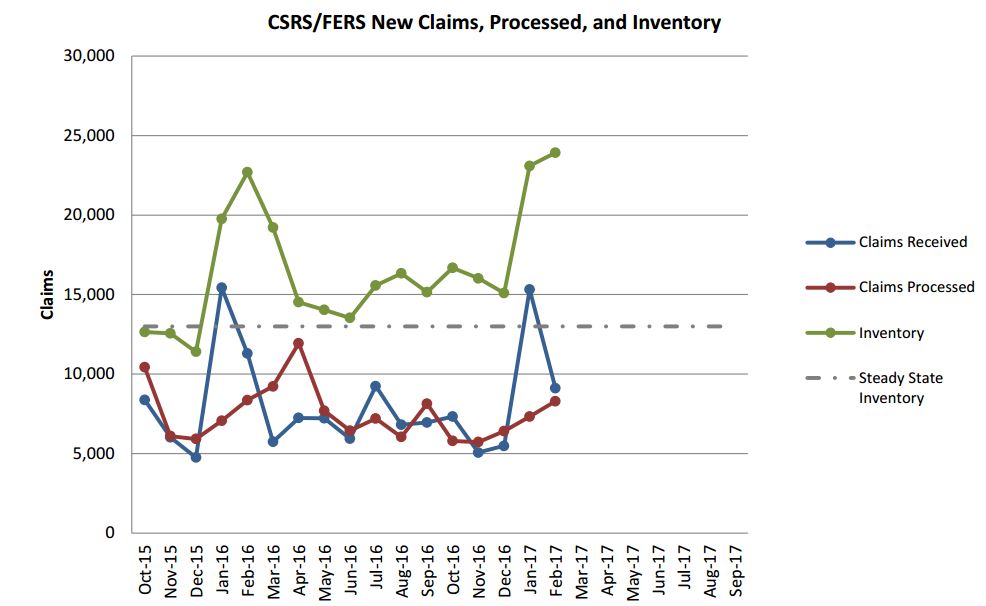
OPM posts highest retirement claims backlog since Oct. 2015
The Office of Personnel Management posted its highest backlog of federal retirement claims since October 2015, though it will likely spend the rest of the year...
The Office of Personnel Management posted its highest backlog of federal retirement claims since October 2015, though it will likely spend the rest of the year bringing that total down, now that its “busy season” is over.
OPM saw 9,114 new retirement claims filed in February, more than a 40 percent decrease from the spike in claims reported in January, which is historically the month when the most feds file for retirement. The agency processed 8,285 claims last month, 13 percent more than it was able to process in January.
Despite the uptick in claims processed, OPM’s claims backlog increased by 3.5 percent, the highest it’s been since October 2015. At 23,916 claims, the backlog remains well above OPM’s steady-state benchmark of 13,000 claims. However, as the data trend indicates, OPM usually drives down its claims backlog during the rest of the calendar year, when it receives the fewest new retirement claims, and as a result, can process older claims at a faster rate.

At this point in fiscal 2017, OPM has processed 56 percent of its claims in 60 days or less. compared to 80 percent in February 2016. Of those claims processed within that 60-day window, it took OPM an average of 38 days to process. Claims beyond that window took an average of 104 days to process.
OPM received about 2,000 fewer claims in February 2017 than it did in February 2016, once again defying predictions that the presidential transition may spur unprecedented retirements in the beginning months of the 2017. OPM received 11,293 claims in February 2016.
Some experts suggested that the presidential transition could lead to higher turnover in the federal workforce, perhaps even triggering the “retirement tsunami,” a sudden surge in retirements that would drain federal agencies of institutional knowledge and a majority of their workforce. It was first predicted in the 1990s as the first of the baby boomers began approaching retirement age simultaneously as federal hiring of younger people slowed down.
Copyright © 2025 Federal News Network. All rights reserved. This website is not intended for users located within the European Economic Area.
Jory Heckman is a reporter at Federal News Network covering U.S. Postal Service, IRS, big data and technology issues.
Follow @jheckmanWFED





